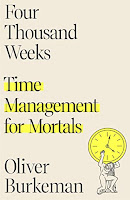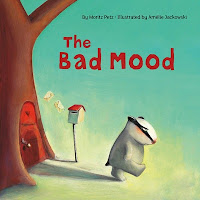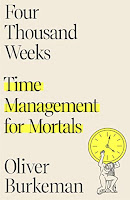Here at Original Content, I've been interested in whether or not slowing down might actually make it possible for us to do more writing in our present. I want to do more with less effort and angst.
Some Speed Issues Unique To Writing
Writing isn't the day job for many writers. We're working writing around a regular income-producing job or family care or both. The desire to rush and get more done in whatever writing time we have is less about impatience and more about necessity.
In addition, two other situations encourage speed for writers.
Traditional Writers. Somewhere around the turn of the century, series became very popular in traditional writing, particularly in fantasy. I can't speak so much to adult series, but for children's and YA, many of these series were actually serials, meaning Book A didn't have an ending, readers had to wait until Book B. Book B might not have an ending, either, you had to go on to Book C.
To keep readers, writers and publishers had to crank out the next book as quickly as possible. Everyone had to work fast. A book a year or even every year and a half or two years is pressure in the traditional publishing world.
Additionally, even a buzz-worthy book may not generate a lot of buyers, whether it's part of a serial or a stand-alone. In children's publishing, it's not unusual for books not to make back their advances. So writers hoping to make a living or even just create and maintain some kind of career feel a need to rush the next project along.
Self-Published Writers. In the past, at least, self-published writers often didn't get large numbers of readers per book, since distribution was such a problem for them. To make up for that, they had to produce a larger number of books. Smallish number of readers per book + more books = more income. For them we might be talking a book every couple of months or less.
Methods For Slowing Down
- Create writing goals and objectives for a specific period of time, be it a year, a quarter, a month, or whatever you want. Goals are what you plan to do, objectives are the steps you are going to take to meet the goals. Try to stick to these goals and objectives. If something new comes up that can be an objective for one of your goals, go ahead and do it. If not, try to set it aside for another planning period.
- Take your to-do list seriously. It should be focused on your goals and objectives.
- Work with multipliers, one task that addresses multiple goals, instead of multi-tasking, which can't be done, anyway. This blog post is an example of a multiplier, since I will publish a version of it it at Medium. It meets both my community building/branding goal and my short-form writing goal.
- Create concentrated blocks of time during which you work on one project. This could be a weekend, a week, a month, a retreat or anything you want. For instance, National Novel Writing Month is an example of a concentrated block of time. School breaks for teaching writers could be examples of concentrated blocks of time. Days children are at school could be examples of concentrated blocks of time for parent writers.
The idea is to try to slow down without cutting output. That could improve the quality of life Burkeman is interested in in Four Thousand Weeks.
















